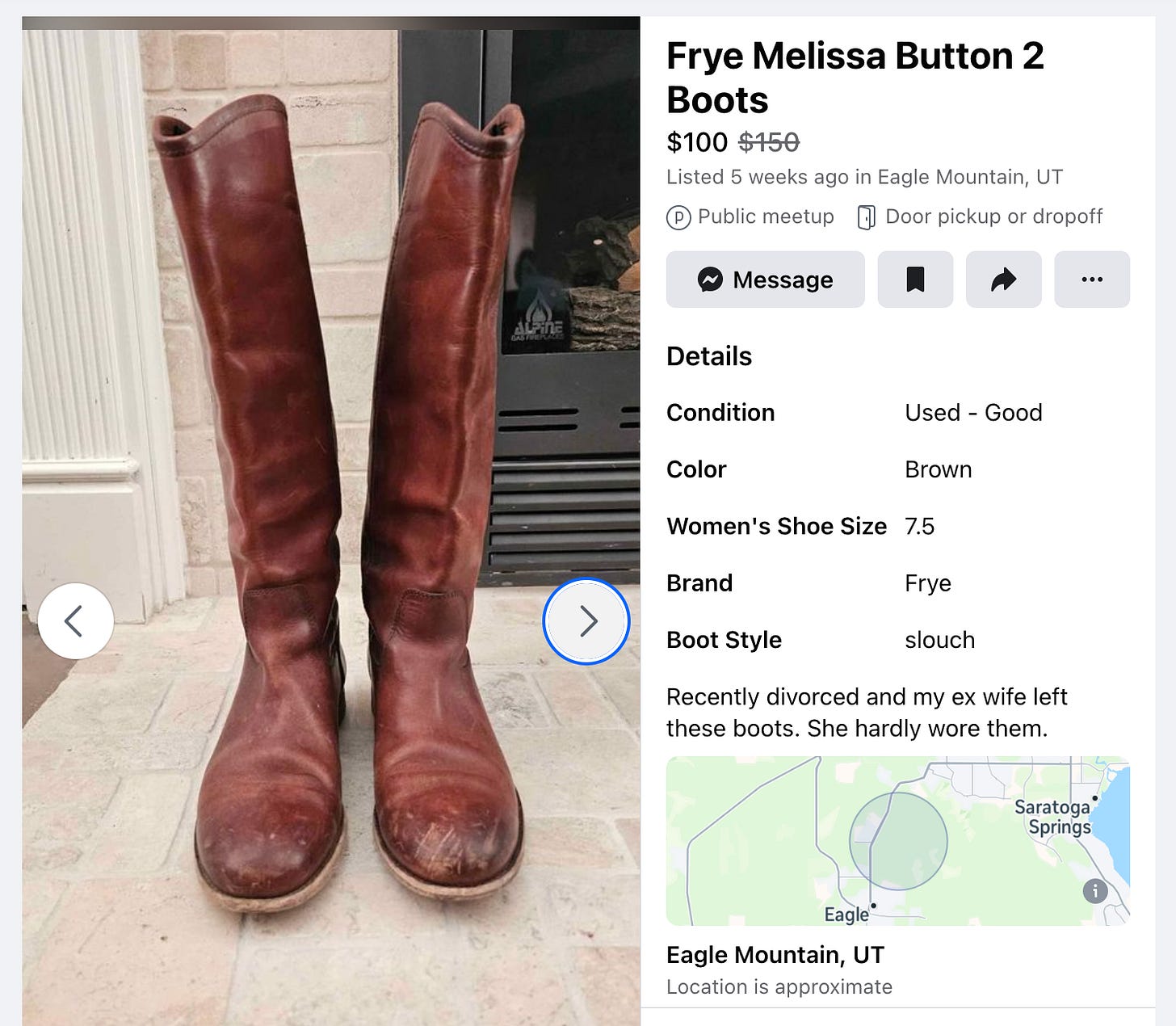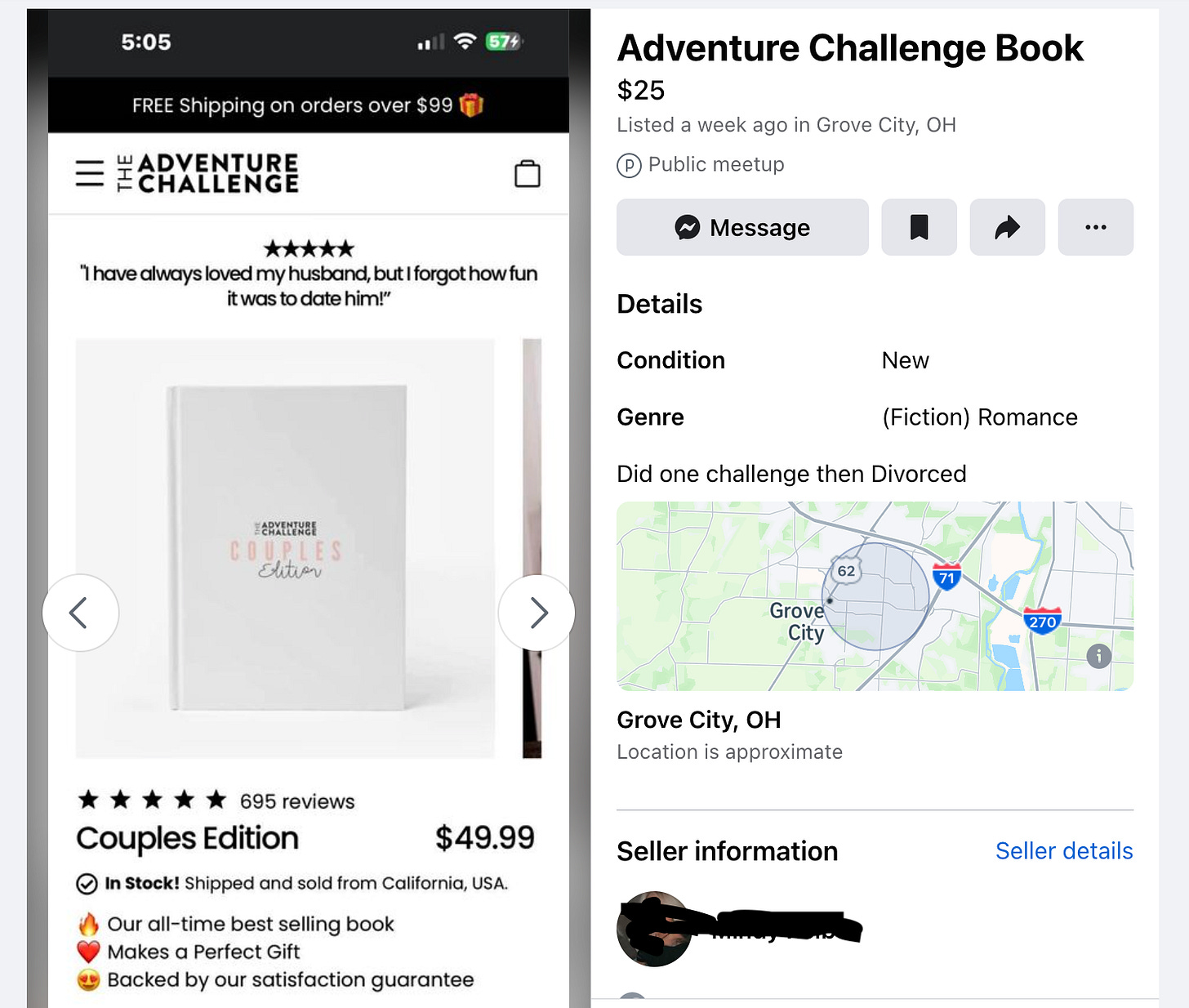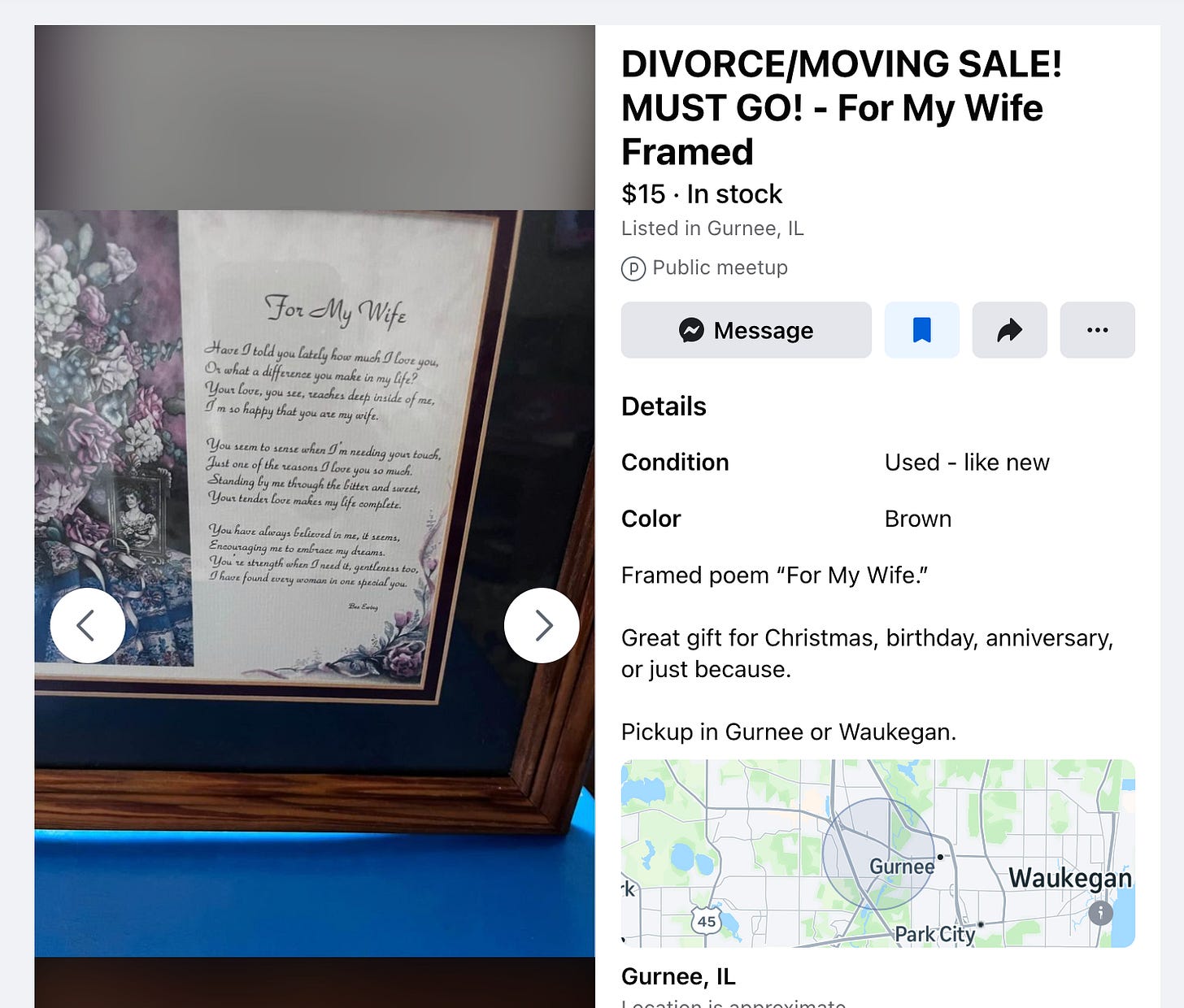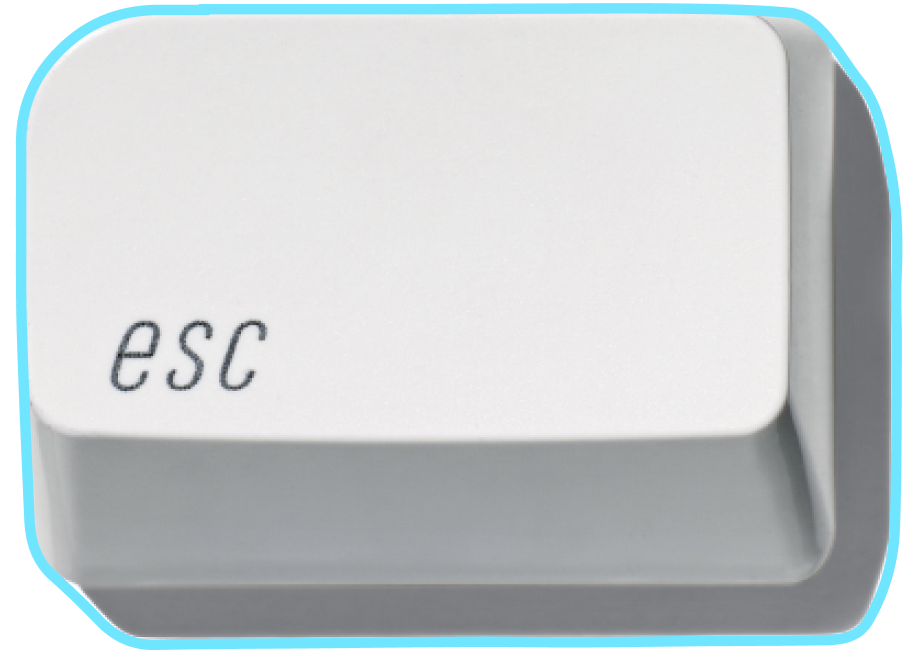The Real Divorcees of Facebook Marketplace
For sale: wife shoes, hardly worn
I’ve moved twice in the past few months so I’ve seen a good deal of change in the people and places around me. But what I feel most tangibly is the ebb and flow of objects. I have been doing a lot of buying, selling, giving away, and purging, which is to say I’ve been spending time on Facebook Marketplace. And because of my current state of hyper-adjustment, it seems to me that every object sold is a symbol of some transformation on the part of its owner — new baby, new significant other, promotion, job loss, change in identity or interests, relocation, vibe shift, death.
If you’ll allow me to romanticize a reseller platform operated by a publicly traded company for a moment, I’ve come to see Facebook Marketplace as a catalog of human transition. An object up for resale is its owner trapped between a life lived and a life to be lived. A set of nesting measuring cups is the mourning of a dead relative, a twin bed the welcoming of a new lover. The crab cannot leave its almost-vacant shell until someone new agrees to fill it with life.
I’ve always felt an intense vulnerability about posting on Facebook Marketplace, not only because it lays my unstable identity bare on a platform that collapses commerce with keeping in touch with my college roommates’ exes, but also because it forces me to put a dollar value on shifting that identity back into focus.
Oftentimes, listings betray a self awareness, exploiting the transition and reducing it to no more than my-loss-is-your-gain, my-baggage-is-your-treasure economics. “It’s a beautiful table but I’ve moved and it doesn’t fit the aesthetic of my new dining room.” “It’s a powerful sou vide but I’m about to have a baby and won’t have time to cook.”
Nowhere is this starker then on divorce sales, which inherently serve as a slate upon which we can project a cornucopia of emotions: tragedy, triumph, bitterness, shame, hope, taboo, elation, isolation.
In the popular imagination, death as the ending to a story borders on cliché. But death of a relationship is almost always a conflict to be resolved. (How many movies can you think of that end in divorce?) In buying a divorced object we get to take the baton of that resolution. We are on our knees, proposing to the newly uncoupled grand piano / power drill / Samsung Galaxy watch, rescuers of the seller, the object, and ourselves all at once.
The cynical side of me sees in these divorce sales yet another fulfillment of the twin American dreams of ownership and matrimony. But the more patient, tender side of me zooms out and sees something much more beautiful: objects that have borne witness to stories, waiting to catalyze new stories.
Who among us is not pre-loved, longing to be loved again?
Plaintext
Word associations
Dana Covit’s elegy for the estate sale in issue 2 of Mildew Magazine does a good job of capturing the new lens through which I find myself looking at Facebook Marketplace:
An estate sale makes an amusing mockery of Joan Didion’s idea that anything worth having has its price. Here, everything has a price: the dirty-faced dolls, the petrified bottles of Elmer’s Glue, the bars of soap, stacks of blank computer paper I stared at hoping some cipher might emerge. At the same time, other items feel utterly priceless: the wedding photo album, a stack of children’s drawings, the brass heart paperweight engraved with A.M.F., a recipe box. And yet, those all have prices too…
The reality, of course, is that without the animating force of the people who acquired these myriad objects, the objects themselves lose some of their magic. Less mementos of a life beautifully lived— more “just stuff.”
Aura, as defined by Walter Benjamin, refers to the authentic presence and energy an object carries due to its particular history and location in space. If, upon returning home, you find that the Limoges swan box whose spell you fell under suddenly wields a less potent charm, you could blame it on its diminished aura. Still, whereas a thrift store completely shatters the thread of provenance, an estate sale preserves it, however tenuously. Wander long enough, let your mind construct a narrative rich enough, and you may just absorb all the context you need to cherish your new finds as if they were, always, your own—only more prismatic and layered with imagined and inherited meaning.
Escape prompt
Strategies for redirecting attention
RUMMAGE
Instead of shopping for objects, visit an online secondhand marketplace (ex. Facebook, Craigslist, Poshmark, Depop, eBay) and search for a life transition: marriage, divorce, graduation, birth, death, new job, etc.
Tell me what you find! Reply, comment, or send an email to hi@elan.place: I may feature it in a future post.












If you’ll allow me to romanticize a reseller platform operated by a publicly traded company for a moment, I’ve come to see Facebook Marketplace as a catalog of human transition. An object up for resale is its owner trapped between a life lived and a life to be lived. A set of nesting measuring cups is the mourning of a dead relative, a twin bed the welcoming of a new lover. The crab cannot leave its almost-vacant shell until someone new agrees to fill it with life.
👆 This is so well put!
the 'escape prompt' is just gold 💎